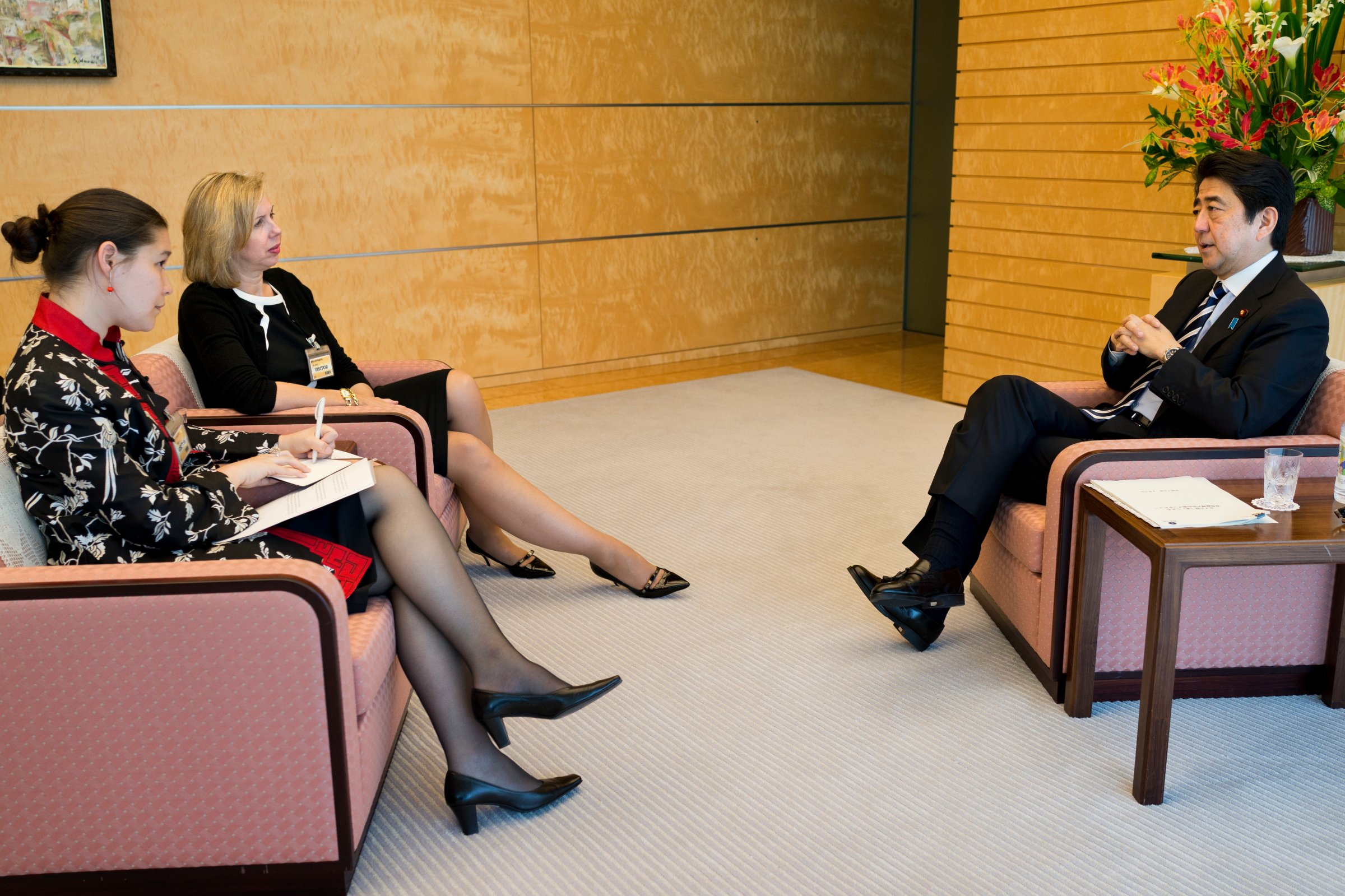
Driving around Tokyo, through shiny streets thick with shoppers, you have to remind yourself that the world’s third largest economy has been gasping for air for years. It is one of history’s great puzzles, how a country could arise from defeat in a world war and build an economy so muscular that it was the envy of the world, only to stagger and then stall as rivals like China and South Korea surged. It did not help that Japan’s political leaders were so weightless that they were treated as disposable, or that many companies viewed individual risk-taking as reckless vanity, or that half the nation’s talent pool–its women–largely sat on the sidelines of its economy.
Shinzo Abe, the popular Prime Minister, is determined to change all that and in the process restore Japan’s pride in its destiny. Beijing-based correspondent Hannah Beech and I sat down with Abe on April 9 to explore his plans. We talked about “Abenomics,” the debate over his pronounced nationalism and whether China is fanning regional tensions to distract attention from unrest at home. “There’s a real sense of energy in Japan that didn’t exist a couple of years ago,” Hannah observes. “Whether this energy can be sustained and whether oversize expectations will be dashed are big questions. But there’s no doubt Abe is linked to that renewed sense of self-confidence.”
Hannah’s mother was born in Japan in 1944; she remembers the desperate poverty, the U.S. soldiers handing out candy to children. “She married an American, even though her father died fighting Americans. Now she’s back living in Tokyo in a prosperous neighborhood with a Scandinavian bakery, an Italian restaurant and a Dean & DeLuca nearby,” Hannah notes. “We shouldn’t forget just how far Japan has come in 70 years–and it is this very recent history of renewal that should give us hope that Japan can restore itself again.”
Nancy Gibbs, MANAGING EDITOR
BEHIND THE STORY
TIME managing editor Nancy Gibbs, second from left, and Beijing-based correspondent Hannah Beech met with Japanese Prime Minister Shinzo Abe at his office in Tokyo. Abe, who became Japan’s youngest postwar Prime Minister during his first term in 2006–07, is working on reinvigorating Japan’s economy and ultimately “refashioning Japan as a modern nation-state–a democratic force that can be a counterweight to an authoritarian China.” For more, see page 26.
NOW ON TIME.COM
New research suggests that the sentiments of your friends’ social-media posts have a real, measurable effect on your mood. So TIME’s Chris Wilson made an interactive tool that ranks your Facebook friends on the basis of how happy they are. Check it out at time.com/happyfriends
NOW ON LIGHTBOX
In order to escape the stern gender roles of the 1950s and ’60s, men who enjoyed cross-dressing would go to Casa Susanna, a 150-acre refuge and resort in the Catskills, in upstate New York. The now closed venue has inspired a new play, Casa Valentina, by Harvey Fierstein. “Their dressing is to lose the male role,” he told TIME’s Paul Moakley. For more, visit lightbox.time.com.
Please recycle this magazine and remove inserts or samples before recycling
More Must-Reads from TIME
- Donald Trump Is TIME's 2024 Person of the Year
- Why We Chose Trump as Person of the Year
- Is Intermittent Fasting Good or Bad for You?
- The 100 Must-Read Books of 2024
- The 20 Best Christmas TV Episodes
- Column: If Optimism Feels Ridiculous Now, Try Hope
- The Future of Climate Action Is Trade Policy
- Merle Bombardieri Is Helping People Make the Baby Decision
Contact us at letters@time.com